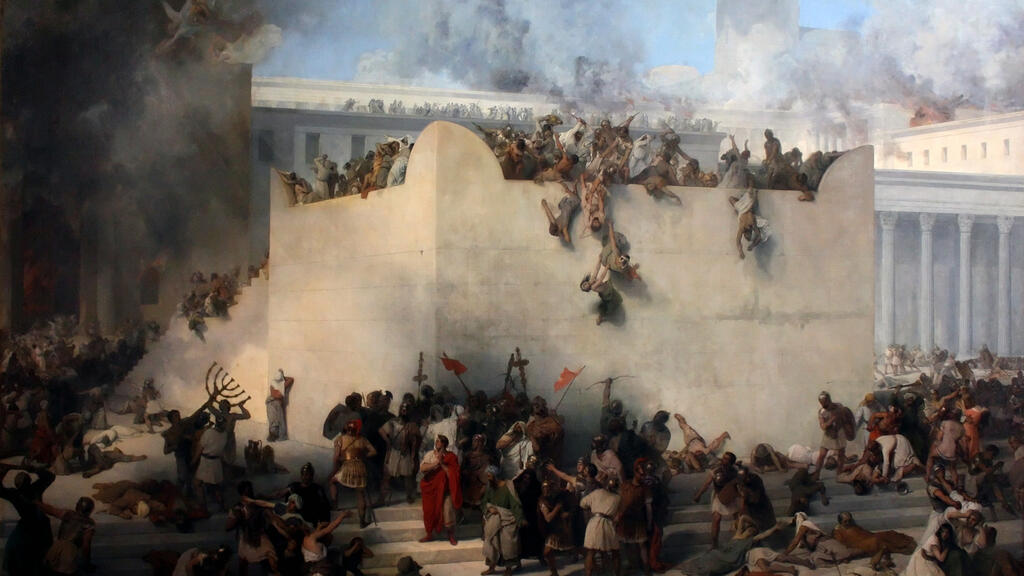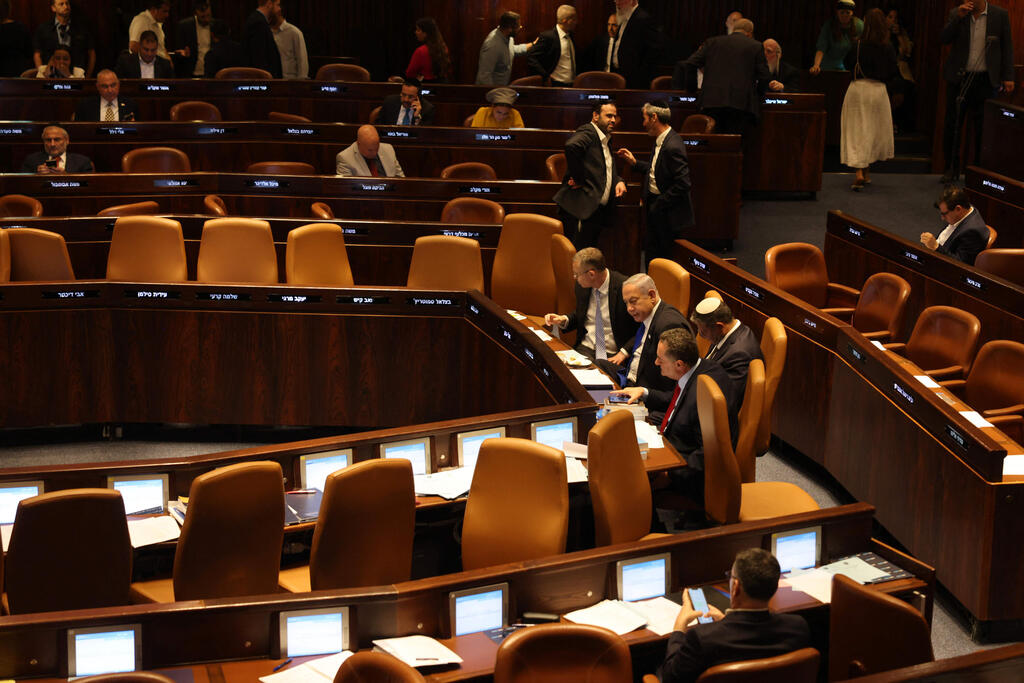Getting your Trinity Audio player ready...
The dispute in Israel is reaching a critical moment: next week, on Tisha B'Av, a national Remembrance Day for the tragic outcomes of past generations' civil disputes that led to war, the Knesset will vote on the first bill of the judicial overhaul.
More stories:
If the proposal to cancel the reasonableness standard is accepted, massive protests are expected from those opposing the move; the fundamental agreements of Israel’s society will be shattered, and the fundamental agreements that bind us together could fracture, perhaps irreparably.
For example, the IDF’s Sayeret Matkal – a special forces combat reconnaissance unit - will be divided into two camps: about 400 reserve soldiers in the unit have written a letter stating that they will no longer volunteer for service if the legislation passes. In opposition to them, another group is organizing, ready to extend their reserve service to fill the gap.
This clash in the elite unit – in which Prime Minister Benjamin Netanyahu and as well as one of his predecessors Ehud Barak, served - is just one example of the process that Israeli society is undergoing. Pilots, doctors, industry leaders, and others working to defend the country, are threatening to cease their volunteer service if the legislation is passed.
On the other side, even within those same groups, there are others calling for support of the judicial overhaul. Caught in the middle, are many families and communities that are being consumed by this conflict. Israel is being torn apart.
Four months ago, a group of professors convened under the auspices of the President's Residence – proposed a comprehensive outline for all parts of the judicial overhaul, based on the understanding that the system must be reformed - not destroyed - in a manner that would bring a better balance to the distribution of power among the authorities without undermining Israel’s democracy.
In the discussion held there, with relevant senior officials, most aspects of the proposal were agreed on, but in the end, the talks failed to proceed. Since then, the situation has deteriorated: chaos has taken hold of the streets, and violent discourse continues to escalate. Therefore, an updated proposal is required to allow the sides to avoid making extreme decisions before the point of no return.
The opponents of the judicial overhaul should remember that it has the support of 64 members of the Knesset who were elected less than a year ago. On the other hand, the overhaul’s supporters should remember that according to polls, the majority of the public doesn’t support the current extreme legislative proposal, and believes it’s important that any systemic changes be made with the broadest possible consensus. The grievances about "past injustices," even if some of them are true, shouldn’t serve as a license to create injustices in the present.
At this critical moment, compromise is vital and it is within reach. The government can’t back away from all of its desired policies due to political pressure brought on by reservists’ refusal to volunteer. However, it should limit itself to reforms that would not disrupt Israel’s democratic structure.
We propose that the reasonability bill be limited sufficiently so that it alone could not be used to overturn government decisions, including those made by ministers authorized to make them by law – provided they are on matters of policy decided by the government forum. Court intervention in appointments will be prevented only if they require Knesset approval, such as in the matter of ministerial appointments.
However, other ministerial decisions, whether based on their direct authority or under Section 34 of the Basic Law: The Government, which allows them to exercise the same authority as a public servant, will continue to be subject to judicial review based on the standard.
But all other decisions made by ministers which would permit them to remove officials in the public sector, would remain under judicial oversight including the use of a reasonability argument. And the same would apply to decisions made by the government, to remove senior public sector officials from office, in cases that do not require Knesset approval.
The proposal constitutes a significant change to current practices because it immunizes government decisions from court criticism based on reasonability as well as decisions that require the approval of the Knesset. The constitutional logic is clear: As a rule, the judicial branch would continue its oversight over the reasonability of decisions of the executive branch.
However, in decisions made by the elected representatives at the head of the executive branch – the government, or when a decision requires parliamentary consent, the courts would be prevented from considering its reasonability. This would express the proper balance of power between authorities. Courts will maintain their oversight authority over government decisions, using all other existing means, which are plentiful.
The opposition would struggle to agree to this proposal, fearing that the coalition would regard their consent would embolden the coalition to push ahead with other aspects of their judicial overhaul. The coalition and particularly the prime minister, must clarify his intentions going forward – as he had done in English – and commit in no uncertain terms, to prevent any further legislation without broad consensus, during the term of the current Knesset, unless supported by at least 70 out of the 120 members of the parliament.
Our proposal if accepted, would mean that no side would emerge victorious. The coalition would have moderate success in instituting certain changes to the balance of power between authorities and the opposition would succeed in ensuring that a separation of powers remains, as the democratic system requires.
Both sides, which are convinced that justice lies with them, must come to terms with the fact that a one-sided victory will be short-lived and a Pyrrhic victory, that would only bring chaos and destruction.
After the Jewish Temple was destroyed twice in history, followed by a 2,000-year diaspora, we've returned to our homeland and established a vibrant Jewish and democratic state. One that many of our people have died defending. Now their families are torn apart by disagreement over the judicial overhaul and if only out of consideration of their hardship, we must not risk a third destruction of our home.
If our proposed compromise is accepted, we will at least be able to see that some lessons taught by our history, have been learned.
Attorney Raz Nizri served as the Deputy Attorney General and currently heads the Public Law, Regulation, and Crisis Management Department an Israeli law firm.
Prof. Yedidia Stern is the president of the Jewish People Policy Institute and a law professor (emeritus) at Bar Ilan University.






